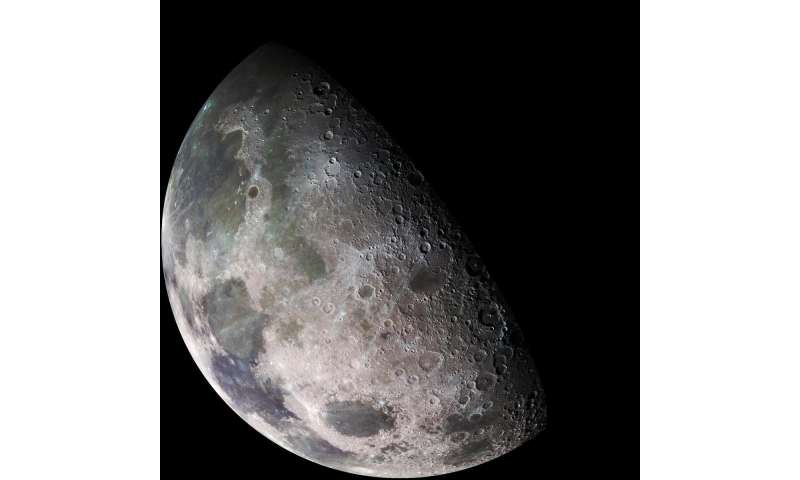Best of Last Week–Black holes erasing the past, turning smart phones into microscopes and the 'loudness' of our thoughts

It was a good week for space news, as a team led by Nobel Laureate Adam Riess found that an improved Hubble yardstick gave fresh evidence for new physics in the universe—they took the most precise measurement of the expansion rate of the universe and found something unexpected. Also, a team with members from across the U.S. found evidence suggesting that the moon's water may be widespread and immobile—not concentrated in some areas, as some studies have suggested. And Peter Hintz, a postdoctoral fellow at UC Berkeley used math to show that some black holes could erase your past if you were to venture into them.
In biology news, a team of researchers from across the U.K. found evidence that suggested plants colonized the Earth 100 million years earlier than previously thought, a finding that could change perceptions of the evolution of the Earth's biosphere. And an international team of researchers conducted the largest study of its kind and found that alcohol use is the biggest risk factor for dementia and among the most important preventable risk factors for the onset of all types of dementia, especially early-onset dementia. Also, another international team conducted a study on a tooth found in a cave on the island of Eleuthera in the Bahamas and identified traces of indigenous Taino in present-day Caribbean populations.
In technology news, a team at Google announced the development of an AI that can predict heart disease by looking at pictures of the retina and claimed it is as accurate as blood tests. And a team of mathematicians at the Department of Energy's Lawrence Berkeley National Laboratory announced that they had developed minimalist machine learning algorithms that can analyze images from very little data. Also, a team at the ARC Centre of Excellence for Nanoscale BioPhotonics in Australia announced that they had developed an add-on clip that turns a smartphone into a fully operational microscope.
And finally, if you feel like everyone around you is always talking too loudly or softly, it might be all in your head, literally. A combined team from NYU Shanghai and NYU found that the 'loudness' of our thoughts affects how we judge external sounds.
© 2018 Science X